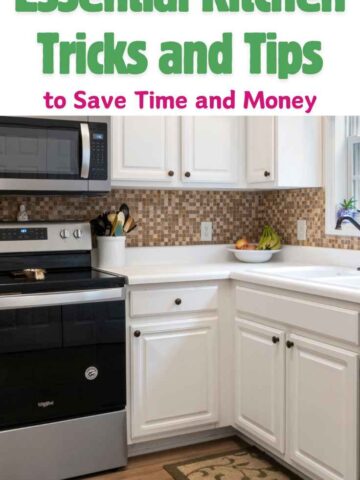Being unsure of where to begin when it comes to making choices that are more ecologically responsible might be a little intimidating. We believe that since it is the heart and nerve center of our homes, the kitchen is an excellent place to begin. Don't be concerned about committing to a large lifestyle change; you'll discover that making little, conscientious changes over time may make a significant impact. Here are a few simple tips to make your kitchen more sustainable that you may include in your daily routine to help you live a little more sustainably.

Tips to Make Your Kitchen More Sustainable
Jump to:
1. Construct a composting container
Nowadays, there is a variety of composting options available to fit your home and lifestyle, ranging from compost bins and tumblers to worm farms and indoor Bokashi buckets to name a few. Establishing a home composting system is an excellent approach to decrease the amount of food waste that ends up in landfills while also ensuring that your garden soil remains happy and healthy. Additionally, it is an excellent method to educate your children about trash and how to be accountable for their influence on the environment.
2. Replace your sponges with new ones
Sponges aren't generally the first item that comes to mind when thinking of kitchen trash that may be recycled in a more environmentally responsible manner. Because it is often made of synthetic fibers, your ordinary sponge may wind up contributing to landfill garbage, which is hazardous to the environment in the process. The most environmentally friendly option is to replace your sponges, scourers, and clothes with environmentally friendly alternatives. Chux®, in particular, has been a proponent of environmentally friendly options for a number of years. They feature an ecologically friendly line of products that are manufactured from renewable resources, natural fibers, and recycled products.
3. Make use of environmentally friendly cleaning products
By substituting natural cleaning products for conventional ones, you may minimize the number of harmful chemicals in your house while also assisting in keeping these noxious substances out of our waterways. The creation of your own DIY cleaning solutions at home is a simple and cost-effective option. Make sure you have enough white vinegar on hand, along with salt, baking soda, and lemons. You'll have everything you need to make a variety of different eco-friendly cleaning solutions.
4. Shop according to the season
Another key method to be ecologically friendly is to shop seasonally and purchase a product that has been produced locally. Produce that is not in season must either be imported from outside, resulting in increased carbon emissions, or produced in greenhouses, which need a significant amount of energy to maintain the proper environment. The nicest thing about purchasing seasonal fruit and vegetables is that the food is generally fresher and much less expensive. Purchasing in bulk is also a smart method to reduce the amount of packing used. Stock up on airtight containers to ensure that any bulk products you purchase can be kept safely and effectively to avoid food waste.

5. Make environmentally friendly decisions
The decisions you make will determine whether or not you have an environmentally-friendly kitchen. Changing your behaviors and finding a sustainable alternative is all that is required; you do not have to live off-grid or in an uncomfortable lifestyle to achieve this. Some environmentally friendly options that every busy family may make include:
- Always have a supply of reusable shopping bags on hand in the vehicle.
- Saying goodbye to plastic straws and replacing them with metal or bamboo alternatives.
- Keep food in tightly sealed containers to help limit the quantity of food waste produced.
- Making the switch to more energy-efficient light bulbs.
- Choosing items that are created from renewable resources.
- When purchasing new appliances, look for those that are energy efficient.
- It is possible to recycle soft plastics at your local supermarket if it does not already provide soft plastic recycling.
- If you're planning a renovation, look for recycled or second-hand materials to work with.




